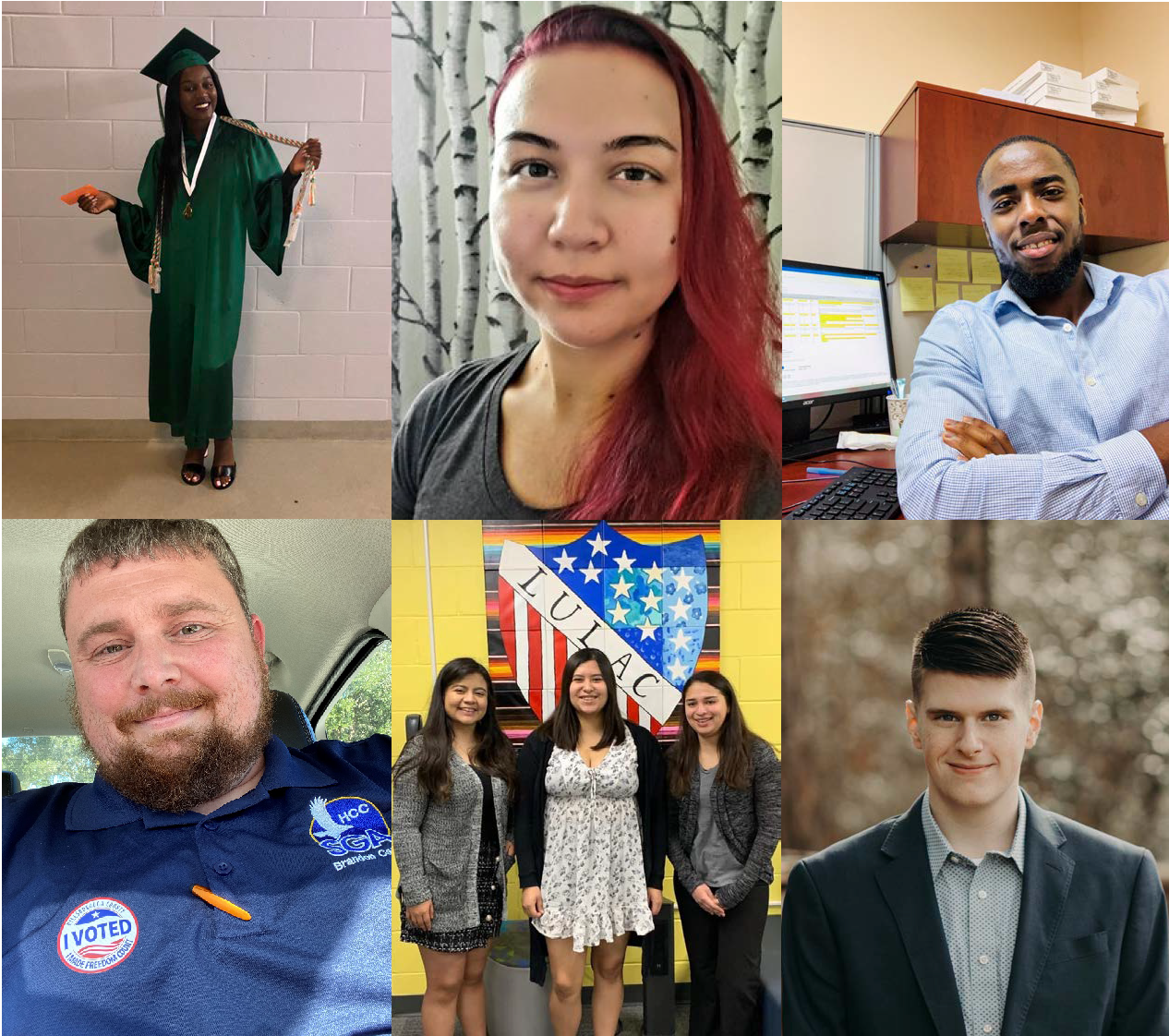Introducing our Student Advisors
Community College Academic and Student Support Ecosystems
In 2019, Ithaka S+R began a three-year project, funded by the Institute of Museum and Library Services (IMLS), to help community colleges and their academic libraries more effectively support their students. This project, known as Community College Academic and Student Support Ecosystems (CCASSE), is part of a growing program of Ithaka S+R research focused on understanding, measuring, and increasing student success at community colleges. Our first phase of work, a survey of academic and student affairs leaders, provided important insights into the trends currently shaping student support. For instance, even before the COVID-19 pandemic academic and student affairs leaders were anticipating offering more diverse learning pathways to students, including more workforce and distance learning courses.
Today, we are excited to introduce our student advisors for the project—seven remarkable students from across the country who will be contributing their unique perspectives and voices. The student advisors will contribute feedback to our recent findings from in-depth interviews with community college leaders, library directors, and faculty—and will speak at an invitational workshop for community college leaders at the conclusion of the project next year.

Clockwise from top left: Angelika Bryan, Christina Hummell-Colla, Ibrahim Sackey, Jacob Bunch, Jennifer Fernandez-Miranda (center), Mitchell Fountain. Not pictured: Segev Trevor Morgan
Angelika Bryan is currently studying criminal justice at Montgomery County Community College, Pennsylvania. In addition to balancing full-time work and part-time study, Angelika is involved in her campus’s SGA (student government association). She stays focused on succeeding academically while making the most of her involvement in campus organizations.
Christina Lehua Hummel-Colla is taking online courses in legal studies at Los Angeles Valley Community College. Christina holds a Master’s degree in Library and Information Science and views her current studies as a win-win “experiment” that will enable her to become a more informed citizen and that may confirm an augmented career path including Indigenous law as a subject specialty.
Ibrahim Sackey began studying information technology at Cuyahoga Community College in Ohio after moving to the United States from Ghana. Working toward his second associate’s degree, Ibrahim defines success as “being able to achieve what you set your mind to”—in his case, being a full-time student while balancing a part-time job, internship, and family commitments.
Jacob Bunch is studying political science at Hillsborough Community College in Florida with the aim of either transferring to the University of Southern Florida or getting involved in politics. Jacob was a founding member of Hillsborough’s student veteran organization, providing veterans on campus with academic and mental health support through community.
Jennifer Fernandez-Miranda graduated from Muscatine Community College in Iowa last May and is currently a student at the University of Northern Iowa. An aspiring English teacher who once thought she’d never go to college, Jennifer measured her success at Muscatine by her grades and her involvement in a wide variety of campus clubs and activities.
Mitchell Fountain recently earned an AS at Panola College in Texas alongside his high school diploma as a dual credit student and is currently studying engineering physics at Stephen F. Austin State University. Mitchell believes his dual credit experience allowed him to develop the academic, practical, and leadership skills necessary to succeed at a university.
Segev Trevor Morgan is studying IT with a programming focus at Arapahoe Community College in Colorado in hopes of transferring to a computer science program. Segev’s previous career experience has helped him view college assignments through a real-world lens. He uses his on-campus library job to help other students connect with the resources they need.
We are thrilled at the opportunity to include the perspectives of these accomplished students in our research. In the coming year, we will conduct a national survey of community college library directors, and release interim findings based on our interviews with leaders, faculty, and students. We look forward to engaging with the higher education community as our work proceeds.